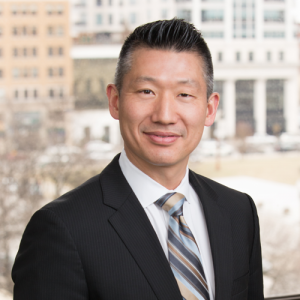On Monday, June 22, 2020, President Trump signed an executive order regarding immigration policies and enforcement amidst the COVID-19 pandemic titled “Proclamation Suspending Entry of Aliens Who Present A Risk to the U.S. Labor Market Following the Coronavirus Outbreak” (the “Executive Order”). Most significantly, the new proclamation affects nonimmigrant visas that permit work authorization. In addition, this Executive Order extends the ban on immigrant visas effective immediately as discussed here. Below is a brief summary of the key provisions of this Executive Order.
Brief Overview
Effective Wednesday, June 24, 2020, at 12:01 AM EDT, and through December 31, 2020, the United States is placing new restrictions on individuals seeking admission to the U.S. using a nonimmigrant visa classification. The visa suspension will apply to foreign nationals, as well as their dependent spouses and children, seeking to enter the U.S. under the following nonimmigrant visas classes:
- An H-1B or H-2B visa;
- A J visa (suspension is limited to foreign nationals participating in an intern, trainee, teacher, camp counselor, au pair or summer work travel program); and
- An L visa.
As with President Trump’s Proclamation 10014, this Executive Order applies to any foreign nationals who:
- Are outside the U.S. on the effective date of the Executive Order;
- Do not have a valid nonimmigrant visa; and
- Do not have an official travel document other than a visa (such as a transportation letter, an appropriate boarding foil or an advance parole document) that permits him or her to travel to the United States.
Nevertheless, there are a few, limited exceptions to this suspension. In particular, one of these exceptions may apply to medical professionals. For example, the suspension does not apply to:
- Any already legally permanent residents of the United States;
- Any foreign national who is the spouse or child of a United States citizen;
- Any foreign national seeking to enter the United States to provide temporary labor or services essential to the United States food supply chain; and
- Any foreign national whose entry would be in the national interest as determined by the Secretary of State, the Secretary of Homeland Security or their respective designees.
Notably, there is no explicit exception for health care professionals. Rather, the Secretaries of Labor, State and Homeland Security are charged with defining those categories of foreign nationals that should be exempted due to the national interest. Specifically, this exemption is defined as covering foreign nationals who are:
- Critical to the defense, law enforcement, diplomacy, or national security of the U.S;
- Involved with the provision of medical care to individuals who have contracted COVID-19 and are currently hospitalized;
- Involved with the provision of medical research at U.S. facilities to help the U.S. combat COVID-19; or
- Necessary to facilitate the immediate and continued economic recovery of the U.S.
Analysis
For purposes of our health care immigration clients, this Executive Order may pose some challenges. While the categories as defined above indicate that some health care professionals may be able to continue to apply for and obtain these non-immigrant visa stamps, that individual must be participating in COVID-19 patient care or research. The standards for this exemption have not yet been established. This may hinder the ability of the health care sector to hire foreign talent in areas unrelated to COVID-19 depending on the scope of the exceptions established.
Practical Takeaway
This Executive Order represents again a further tightening of immigration policies and enforcement intended to combat the impact of the COVID-19 pandemic on the U.S. workforce. Clients should be aware of the Executive Order when considering their recruiting and hiring practices. Specifically, the restrictions on health care professionals who are currently outside the United States and would not be engaged in COVID-19 patient care or research. As of right now, the ability to provide employment-based immigration services to our clients for foreign nationals already present in the United States has not been affected, though we will continue to monitor any new policy changes. We anticipate many questions and concerns regarding immigration issues in the days ahead, so please do not hesitate to contact us.
For more information, please contact:
- Michael Kim at (317) 977-1418 or mkim@wp.hallrender.com;
- Lindsay Ramsey at (317) 429-3637 or lramsey@wp.hallrender.com;
- Charlotte Fillenwarth at (317) 977-1476 or cfillenwarth@wp.hallrender.com;
- Grace Shelton at (317) 429-3620 or gshelton@wp.hallrender.com; or
- Your regular Hall Render attorney.
Hall Render’s attorneys and professionals continue to maintain the most up-to-date information and resources, which are available at our COVID-19 Resource page, through our 24/7 COVID‑19 Hotline at (317) 429-3900 or by contacting your regular Hall Render attorney.
Hall Render blog posts and articles are intended for informational purposes only. For ethical reasons, Hall Render attorneys cannot—outside of an attorney-client relationship—answer specific questions that would be legal advice.



